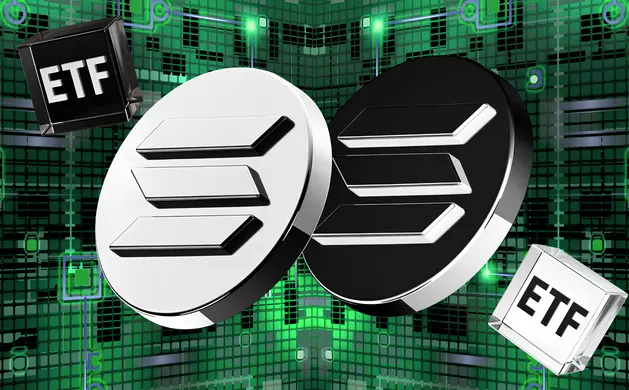Senate Approves Stablecoin Bill With Tech Restrictions

GM. The Senate has passed the GENIUS Act, delivering the first federal stablecoin framework while restricting tech giants like Meta and Amazon from joining the party.
Meanwhile, JPMorgan has launched a deposit token pilot on Base; the DOJ is moving to seize $225M in USDT tied to scams; and Spain’s BBVA is advising wealth clients to buy Bitcoin and Ether.
Regulators are writing the rules, and institutions are already playing by them. 👇
Senate Approves Stablecoin Bill With Tech Restrictions
The US Senate passed the GENIUS Act on Tuesday, voting 68-30 to create the country’s first legal framework for dollar-backed stablecoins. The legislation now heads to the House, with Trump pushing for it to reach his desk before the August recess.
The bill mandates that stablecoins be fully backed by cash or short-term Treasurys, with monthly disclosures and annual audits for issuers holding over $50 billion. It also grants “super priority” in bankruptcy, ensuring stablecoin holders can recover assets before other creditors.
Large tech companies like Meta and Amazon are barred from issuing their own stablecoins unless they meet strict risk and data privacy standards. Critics say this still leaves loopholes for Trump’s crypto ventures, including his personal stablecoin USD1.
Senator Warren blasted the bill for enabling corruption, calling it a “super highway” for abuse while omitting rules to block presidential profiteering. Despite objections, the White House endorsed the bill, and the crypto lobby sees it as a crucial step toward market legitimacy.
JPMorgan Launches Deposit Token Pilot On Base
JPMorgan will pilot a crypto asset called JPMD on Coinbase’s Base network this week, designed as a “permissioned” digital version of commercial bank deposits. Initially limited to institutional clients, the token allows near-instant settlements. The bank has not yet confirmed how JPMD differs from traditional stablecoins, but described it as a future alternative for onchain B2B transfers.
The program will run for several months and may eventually expand beyond USD-denominated tokens if regulators approve. JPMorgan filed a trademark for JPMD earlier this month and hinted it could support digital asset settlement and cross-border payments. This is Kinexys’ first public deployment and places JPMorgan alongside other tech giants exploring blockchain-based dollar instruments.
Justice Department Moves To Seize $225M In USDT
The US Department of Justice filed to seize $225.3 million in Tether’s USDT, the largest forfeiture ever linked to “pig butchering” crypto scams. The funds were traced to a laundering network that operated hundreds of thousands of transactions via 144 crypto accounts on OKX. Investigators said the scammers disguised the illicit origin of the money using fake personas and romance manipulation.
Tether collaborated with the US Secret Service after identifying the suspicious accounts in 2023, helping authorities locate wallets used in high-volume laundering. The seized USDT was linked to addresses originating in the Philippines that handled more than $3 billion in one year. Tether said it has now frozen $2.7 billion in assets tied to criminal activity.
BBVA Advises Clients To Buy Bitcoin And Ether
Spain’s second-largest bank BBVA is now recommending that its wealth clients invest between 3% and 7% of their portfolios in crypto. The bank began formally advising on Bitcoin last September and has since expanded its support to include ether as well. The news was disclosed at the DigiAssets conference in London by blockchain head Philippe Meyer.
While many banks now offer digital assets, BBVA's cryptocurrency policy stands out by directly advocating long-term exposure. Meyer noted that more cryptocurrencies may be added to client portfolios by the end of the year. The strategy signals growing alignment between legacy banking and decentralized financial assets as global demand rises.
Data of the Day
The average cost to mine one Bitcoin has surpassed $70,000 this quarter due to climbing energy prices and rising network hashrate. Research firm TheMinerMag reported the median production cost grew 23% in Q1 and is up another 9% in Q2, following months of inflationary pressure. These costs do not include hardware depreciation or revenue from machines rented to third parties.
Despite elevated costs, most miners remain profitable with Bitcoin hovering near $104,000. However, smaller operators face shrinking margins and potential shutdowns if prices dip further. Industry analysts warn that rising operational expenses may accelerate miner consolidation as efficiency becomes critical for long-term viability.

More Breaking News
- Pro-Israel hackers drained over $90M from Iran's Nobitex exchange, calling it regime-linked and threatening to leak sensitive internal data.
- Ethena Labs and Securitize enabled 24/7 atomic swaps between USDtb and BlackRock’s tokenized BUIDL fund, boosting institutional DeFi access.
- Spokane, Washington has banned Bitcoin ATMs citywide, citing their growing role in nationwide fraud and ordering all machines removed in 60 days.
- China's central bank pledged global expansion of its digital yuan, establishing an international hub in Shanghai and criticizing dollar reliance.
- Polygon zkEVM spun off as new startup ZisK, as the foundation pivots toward Polygon PoS and sunsets its $250M zero-knowledge chain investment.
- Deribit and Crypto.com added BlackRock's BUIDL fund as trading collateral, offering lower-margin crypto leverage with tokenized Treasury backing.
- Coinbase Derivatives plans to accept USDC as collateral for US futures trading by 2026, partnering with Nodal Clear to finalize the integration.
For the latest updates on digital asset markets, follow us on X @Datawalletcom.
.webp)
Written by
Jed Barker
Editor-in-Chief
Jed, a digital asset analyst since 2015, founded Datawallet to simplify crypto and decentralized finance. His background includes research roles in leading publications and a venture firm, reflecting his commitment to making complex financial concepts accessible.







